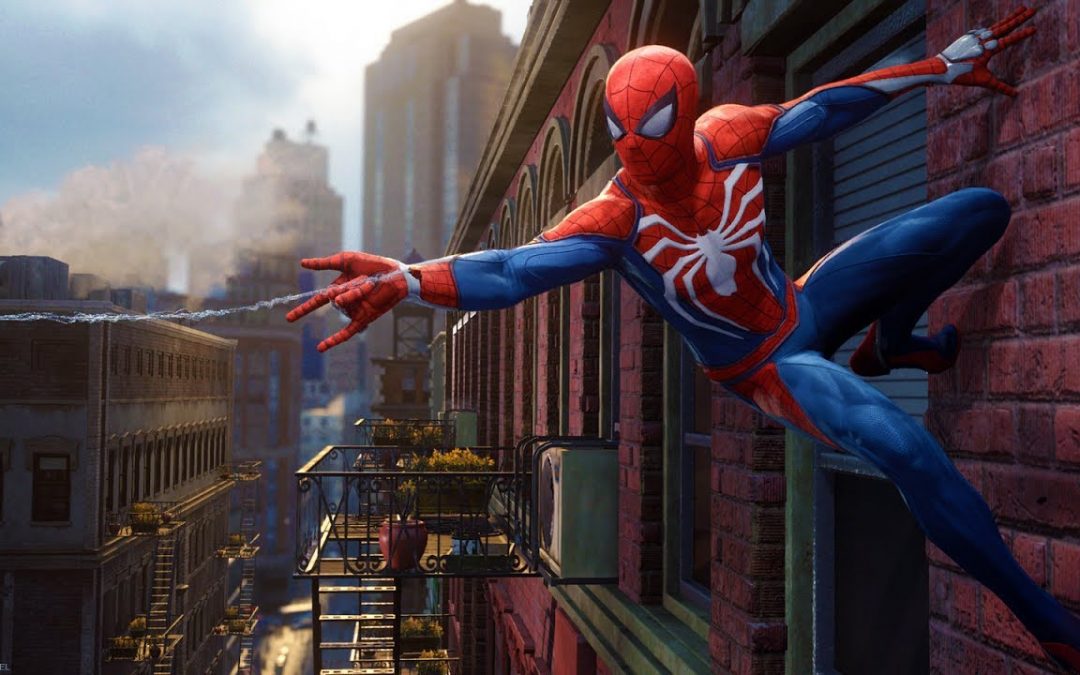Insomniac’s Spider-Man for PS4 is a very good game. Some would go so far as to call it great. This group apparently includes the Marvel executives who compared the game to the 2008 Iron Man film that kickstarted the now mythical Marvel Cinematic Universe. That comparison has naturally inspired some to consider the increasingly likely possibility that Marvel may use Spider-Man as the basis for a Marvel games universe.
I sincerely believe that Spider-Man can be the solid foundation for a Marvel gaming universe. However, if Marvel is serious about it, the company needs to learn from the mistakes it made when it built its cinematic universe.
When you look back at the MCU, it’s pretty obvious that things didn’t really get cooking until the later phases. That doesn’t mean that the movies in phase one were terrible. Iron Man was incredible, Captain America: The First Avenger was at least interesting, and The Avengers was revolutionary. However, phase one (and two) also contain some pretty big misfires.
Thor, The Incredible Hulk, Iron Man 2, Thor: The Dark World… if there’s one thing that unites the creative failures of that time period it’s complacency. When Iron Man became a surprise critical and box office hit, Marvel undoubtedly took some time to think about what it had on its hands and why it worked.
In the process, the studio did what every company on Earth does when it finds success: they tried to do the same thing again. Many of those early MCU movies suffered because they followed a set formula of action, visual design, and dialogue/plot structure that resulted in diminishing returns. Marvel mistakenly believed that the name value of its characters was enough to keep the gravy train on its tracks. What the studio didn’t seem to realise – or appreciate – at the time was that Iron Man was widely successful because it was different from all the comic book films that came before it, and because it was good.
I mention this in relation to the theoretical Marvel games universe because it’s already easy to see how Marvel could become complacent with what Spider-Man delivered. I really liked Spider-Man, but the reason I didn’t necessarily love Spider-Man is that it played things very safe. Its core design was very similar to 2018’s God Of War in many respects, which was, itself, very similar to many other games released over the past few years. If the Assassins Creed and Arkham Asylum games didn’t go through all the trial and error first, we wouldn’t have Spider-Man at all.
Large worlds, lots of side quests/collectibles, upgrade systems, gradual map unlocking – all of these aspects can be good on their own, but the problem is that more and more developers are combining them in a very specific way that’s resulted in the same basic product. Insomniac threw in a few special ingredients (Spidey’s charm, an excellent web-slinging system, a very good story), but the developer ultimately chose to adhere to a somewhat strict formula regardless of whether or not certain elements (radar towers, lengthy stealth sections, several upgrade options) really belonged in the game.
It would be very easy for Marvel to point to Spider-Man and tell Insomniac, or another developer, “we want this game, but with Iron Man/Thor/Captain America/the Incredible Hulk.” And those games would probably sell very, very well. After all, even most of the “bad” MCU movies made a fortune at the box office. What’s going to happen eventually, though, is the same thing that happened with the MCU and the same thing that’s currently happening with the DCEU (to a certain extent). Fans are going to start mistrusting the value of the universe if it starts to deliver experiences that are similar to – but not as refreshing as – the game that kicked the whole thing off.
Fortunately, Marvel already knows the solution to this problem because it’s already used it to save the MCU. The studio just needs to make sure that “MGU” titles represent the voices of their creators.
Much like Taika Waititi lent Thor: Ragnarok an almost anime-like world and scale, let Devolver Digital produce a Deadpool game worthy of the hero’s passion for the absurd. Just as James Gunn turned sharp dialogue and perfectly placed music into lethal weapons in Guardians Of The Galaxy, let Naughty Dog make a Captain America game that captures the hero’s almost film serial-like sense of adventure. Let Blizzard make an X-Men action game, let Ninja Theory take a stab at Daredevil, and let Epic Games have a crack at the Incredible Hulk.
Marvel needs to give multiple studios the chance to leave their own creative mark on the Marvel games universe. Granted, that’s a scary path that could lead to failure. We’ve already seen Marvel vs. Capcom: Infinite struggle, Telltale’s Guardians Of The Galaxy was a bit of a bust, and there’s still that mysterious Square Enix Avengers project we’re waiting to hear more about. There are enough reasons for Marvel to be wary of allowing multiple studios to pitch so many ideas.
However, just as movies like Black Panther, Spider-Man: Homecoming, and Avengers: Infinity War set new standards for the MCU by reflecting a particular creator’s skills and sensibilities, Marvel needs to trust other game studios the way that it trusted Insomniac. The company needs to believe that multiple, capable creative voices have more long-term value than the repetition of a formula. Otherwise, you get EA and Star Wars.
I liked Insomniac’s Spider-Man, but I hope I don’t see too many other Marvel games like it.

